

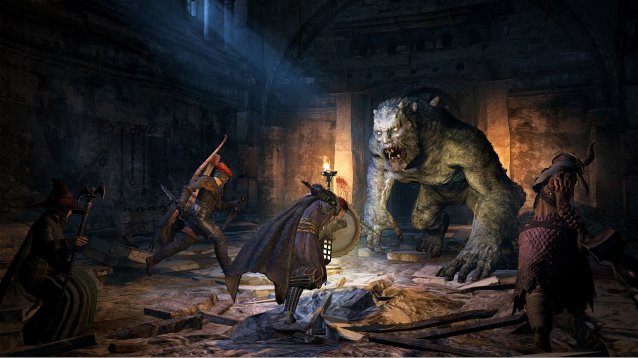
As far as gaming genres go, RPGs are pretty old. When video games were in their infancy as a medium, what we now consider “traditional” roleplaying games were just starting to take form. Dungeons & Dragons, developed from the fantasy wargame Chainmail, was arguably the leader of the pack. And it wasn’t long before these completely analog RPGs would be influencing video games, spawning a huge genre of digital counterparts.
It’s been awhile though, since we’ve last seen a game that captures the spirit of the good old D&D. Roaming through the countryside, slaying classic monsters like cyclopses, manticores and chimeras? Raiding dungeons, killing (and getting killed by) dragons? That's not so rare in video games, especially if you're a Skyrim fan. That one at least had dragons.
But there's just something to a traditional RPG, that specific tailoring of a character, balancing the right equipment and skills, finding better equipment for the task at hand, learning how to make best use of the carefully crafted combination of attributions against a classic set of enemies. Goblins at first. Ever more towering monstrosities after a while. Gaining one character level at the time.
That is just what Dragon's Dogma is all about. That and more.
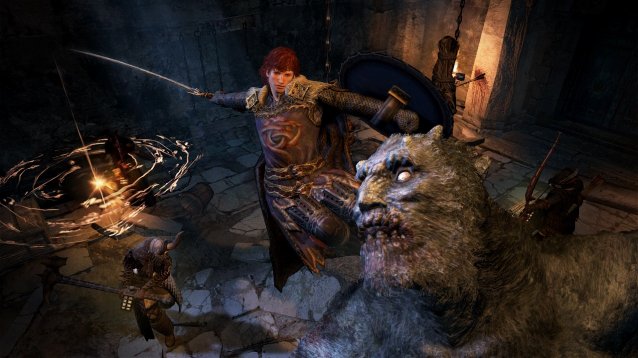
In the original Dungeons & Dragons, the player needed a party of characters to make the most of the game. Every character class has a specific role to fulfill, and if a party was lacking one of them, say a wizard, fighter, or rogue, there would be trouble.
Coincidentally, those are three classes to chose from when starting a new character in Dragon’s Dogma, except that they bear different names. That is one of the things about the game: it's basically Red Box D&D in everything but in name. The three starting classes (called "vocations") are not called fighter, rogue and wizard but instead correlate to fighter, strider and mage, respectively. The Dark Arisen re-release even has an incredibly tough, floating tentacle monster that is not called Beholder, but Gazer.
What makes Dragon’s Dogma a great game that rises above other titles is that it is quite unique. It doesn’t follow any of the established routes; it is not a Diablo clone, it is not an Elder Scrolls copycat, it is not a JRPG (despite being an RPG from Japan) and, despite being closest to Monster Hunter in function, is not quite like that game either. And despite feeling a lot like classic D&D, it is also not anywhere close to Baldur’s Gate or Neverwinter Nights.
Dragon’s Dogma is an action RPG, but more in the way the Onimusha games were. The designers no doubt took some hints from Demon’s Souls, though the game takes place in a truly massive open world where the player retrieves quests from NPCs, rather than explore and just try to avoid death. Also, the combat isn’t quite as tightly designed as the Souls games, but that doesn’t really matter, it’s still good enough for the game to work tremendously well.
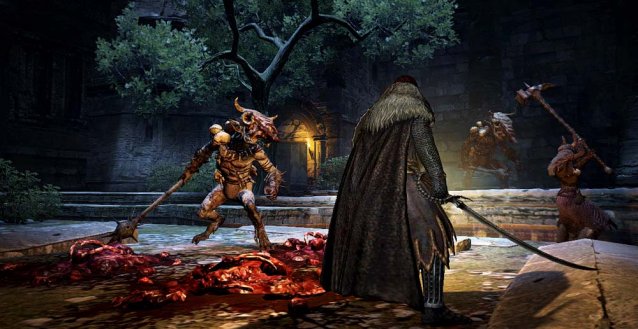
The true genius of Dragon’s Dogma however is the Pawn system, a way of handling the character party and implementing a “half” multiplayer system that doesn’t requires you to interact with pesky other people in your single-player game. Every player can design a “Pawn” character to fight alongside the main character. Those Pawn NPCs can be let at random to other players in order to help them earn experience points. After a time, they return to their “creator”, bringing with them more XP and improved skills. That, along with the option to hire mercenaries, allows the building of elaborate parties where every character has a dedicated role. Long and close range attacks, healing, tanking: meaty RPG features that are rarely seen in games that are as action-oriented as this one.
Combine that with challenging monster encounters, great looking art direction, some neat takes on classic D&D Monster Manual creatures, a huge open world to explore and the game just might be hidden gem. Dragon’s Dogma wasn’t perfect upon its release last year. It’s a hugely ambitious game, a labor of love shared between the revered creators of Resident Evil, Devil May Cry and Fire Emblem. It desperately need more time to add that last sheen of polish. That is where this year’s release of Dark Arisen comes in.
Dark Arisen is basically a re-release of the original game, a “Game of the Year+” edition if you will. All DLC is included, and some polish has been added, like a fast travel system. Also, there is a new chunk of campaign for higher level characters, new content that takes even bigger hints from the Souls games by adding much more challenging encounters as well as a comparatively bleaker visual aesthetic.
It’s a package well worth the rather low asking price; after all this is not really a completely new release. And when it comes to the bang for the buck ratio, gamers looking for an expansive RPG can’t do much wrong here. Go for it. Indulge in some great old school gaming with the freshest take on multiplayer elements this side of the Souls games.
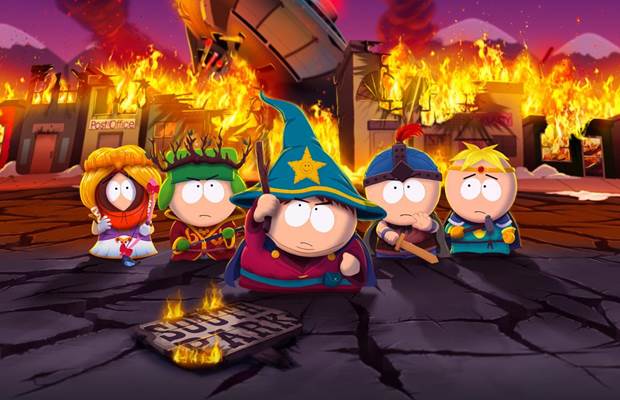


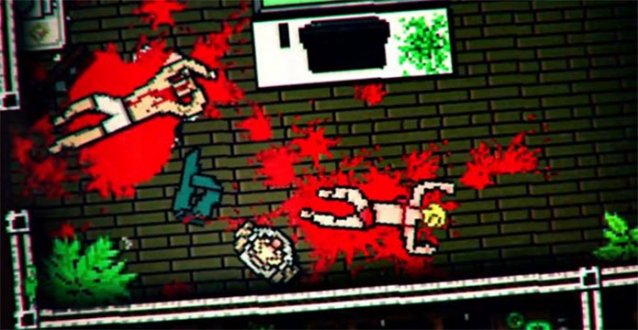
 FIFA 16 licenses: new teams and leagues - rumors and news
FIFA 16 licenses: new teams and leagues - rumors and news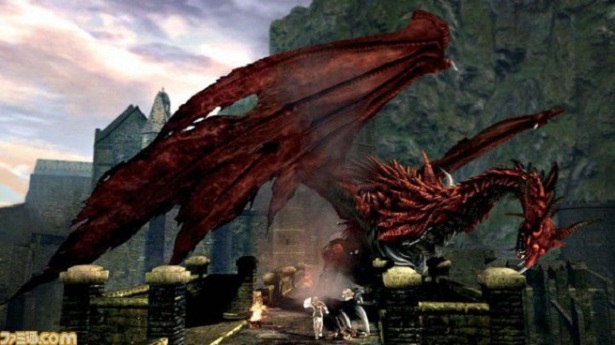 Watch James Play Dark Souls
Watch James Play Dark Souls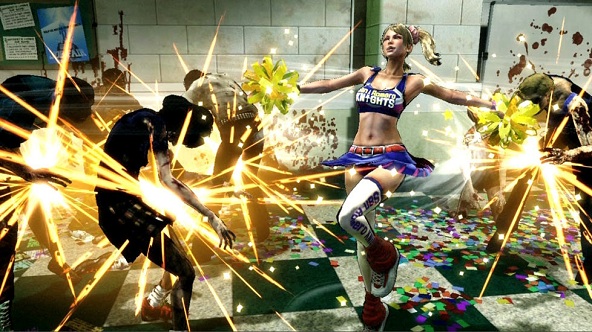 Lollipop Chainsaw Walkthrough
Lollipop Chainsaw Walkthrough Women in Games: A.J. Hateley, Camouflaj Concept Artist
Women in Games: A.J. Hateley, Camouflaj Concept Artist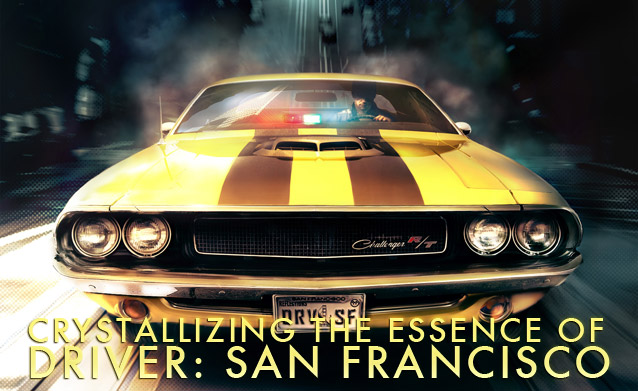 Crystallizing the Essence of Driver: San Francisco
Crystallizing the Essence of Driver: San Francisco